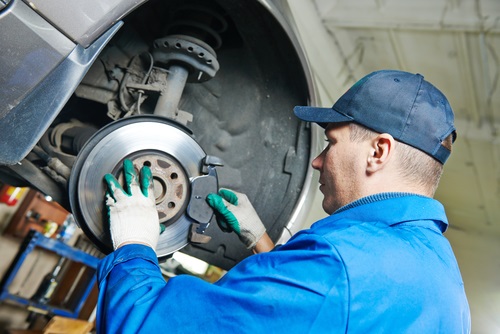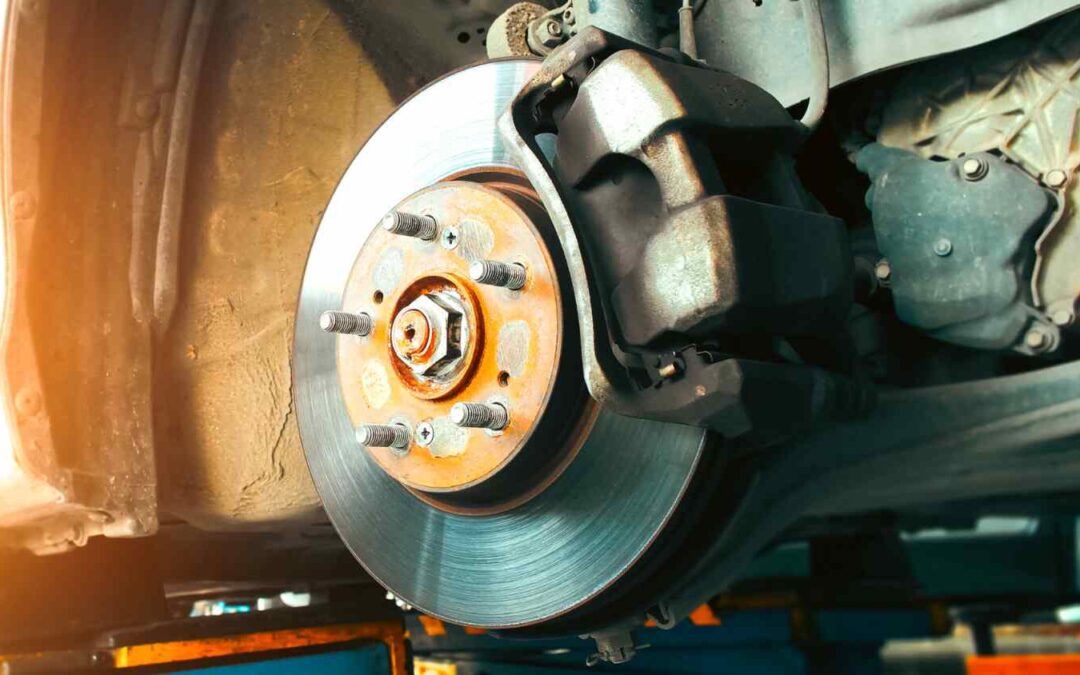Welcome to the All Around Auto Repair blog, where we dive into the essentials of one of the most critical safety features of your vehicle: the brakes. Whether you’re navigating through the hustle and bustle of city traffic or cruising on the open highway, understanding your vehicle’s braking system, from standard to performance brakes, and knowing how to maintain them can make all the difference in your driving experience. Let’s break down everything you need to know.
Understanding Your Braking System
At its core, a braking system is designed to slow down or stop your vehicle by converting kinetic energy into thermal energy through friction. Here’s a quick overview of the main components involved:
– Brake Pads and Rotors: When you press the brake pedal, the brake pads clamp onto the rotors (or discs), creating friction that slows down the wheel.
– Calipers: These are the units that house the brake pads and straddle the rotor. They play a critical role in the braking process.
– Brake Fluid: This hydraulic fluid transfers the force of your foot on the brake pedal through the brake lines to the calipers, enabling them to squeeze the brake pads against the rotors.
– Brake Lines: These lines carry brake fluid from the master cylinder to the brakes at each wheel.
From Normal Brakes to Performance Brakes
While all braking systems follow the same basic principle, there are differences between normal (standard) brakes and performance brakes.
Normal Brakes
Designed for everyday use, normal brakes are built to offer a balance between performance, durability, and cost-effectiveness. They are ideal for regular driving conditions, providing adequate stopping power for daily commutes, city driving, and occasional long trips.
Performance Brakes
Performance brakes, on the other hand, are designed for vehicles that require extra stopping power and endurance, often under high-speed or extreme driving conditions. They typically feature larger rotors, high-performance brake pads, and sometimes even upgraded calipers. These components work together to provide shorter stopping distances, better heat dissipation, and reduced brake fade during intense use.
Maintaining Your Brakes
Regular maintenance is crucial to ensure your brakes remain in top condition, ensuring your safety and prolonging the lifespan of your braking system. Here are key maintenance tips:

car mechanic worker replacing brakes of lifted automobile at auto repair garage shop station
Regular Checks and Servicing
– Brake Pads: Check for wear and tear. Most brake pads have wear indicators that make a noise when it’s time to replace them.
– Rotors: Look for signs of warping or excessive wear. Rotors can often be resurfaced but may need to be replaced if they are too worn down.
– Brake Fluid: Ensure it’s at the correct level and replace it according to your vehicle manufacturer’s recommendations. Old or contaminated brake fluid can affect braking efficiency.
Performance Brake Maintenance
– High-Performance Pads and Rotors: These may require more frequent checks as they are often subject to more extreme conditions.
– Brake Fluid: For performance driving, consider using a high-quality brake fluid with a higher boiling point to prevent brake fade.
Driving Habits
– Avoid hard braking when possible. Gradual stopping can help extend the life of your brakes.
– Reduce excess weight from your vehicle to decrease the amount of stress on your brakes.
– For performance drivers, practice threshold braking and other advanced techniques to minimize wear and maximize braking efficiency.
When to Replace Your Brakes
Knowing when to replace your brakes can prevent costly repairs and ensure your safety. Here are signs it’s time for a replacement:
– Squealing or grinding noises during braking
– Increased stopping distances
– The brake pedal feels “spongy” or requires more pressure than usual
– Vibration or pulsation felt through the brake pedal or steering wheel
Whether you’re a daily commuter or a performance driving enthusiast, understanding and maintaining your vehicle’s brakes is paramount. At All Around Auto Repair, we’re committed to helping you keep your brakes in optimal condition, ensuring your safety and enhancing your driving experience. Remember, regular maintenance is key to preventing brake-related issues, so don’t hesitate to bring your vehicle in for a check-up. Safe driving starts with well-maintained brakes.
This comprehensive guide covers the essentials of understanding, using, and maintaining both normal and performance braking systems. For further advice or professional brake services, feel free to contact us at All Around Auto Repair. We’re here to assist you with all your automotive needs, ensuring your vehicle remains safe and reliable on the road.


